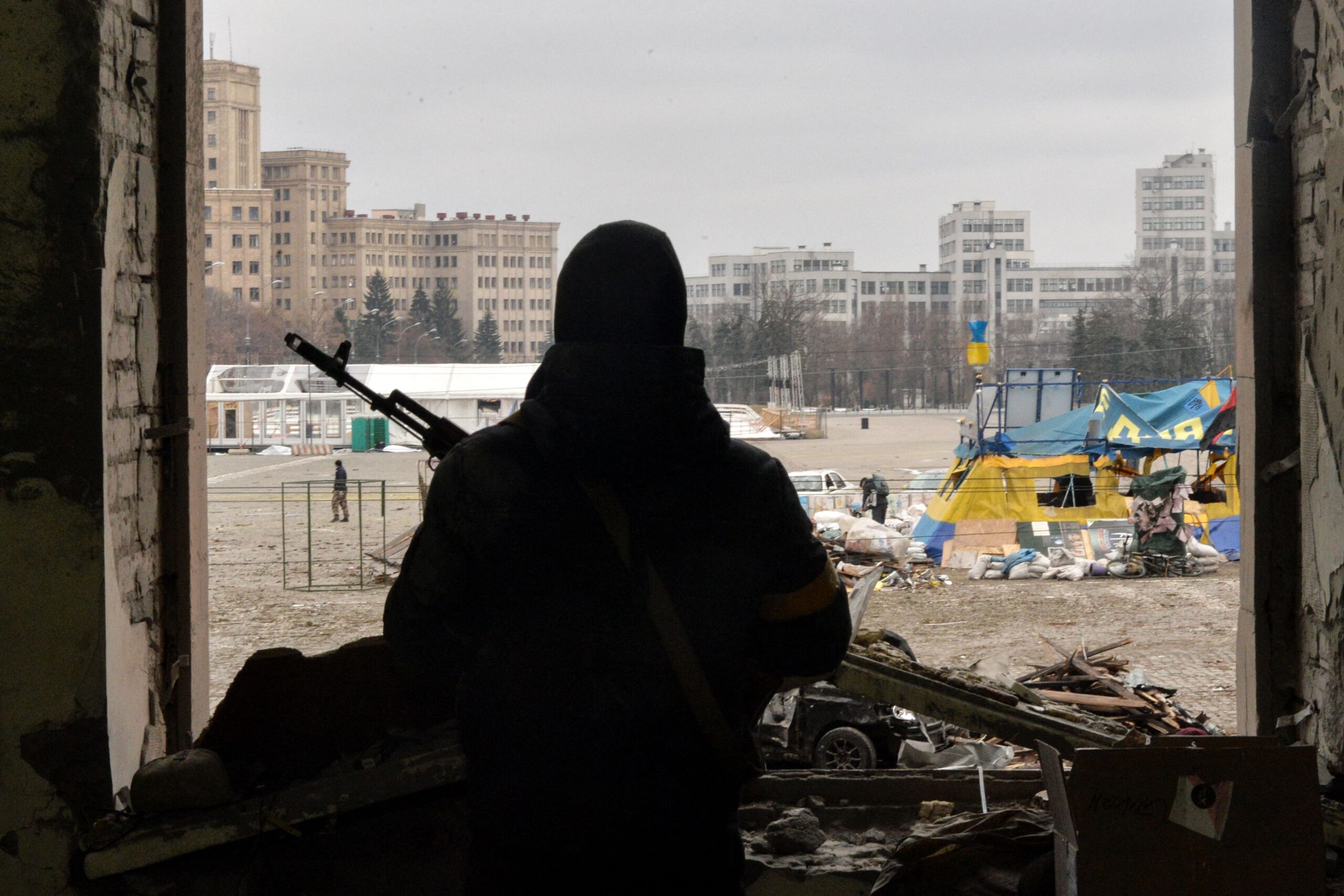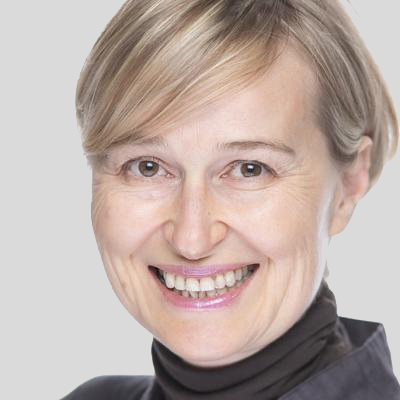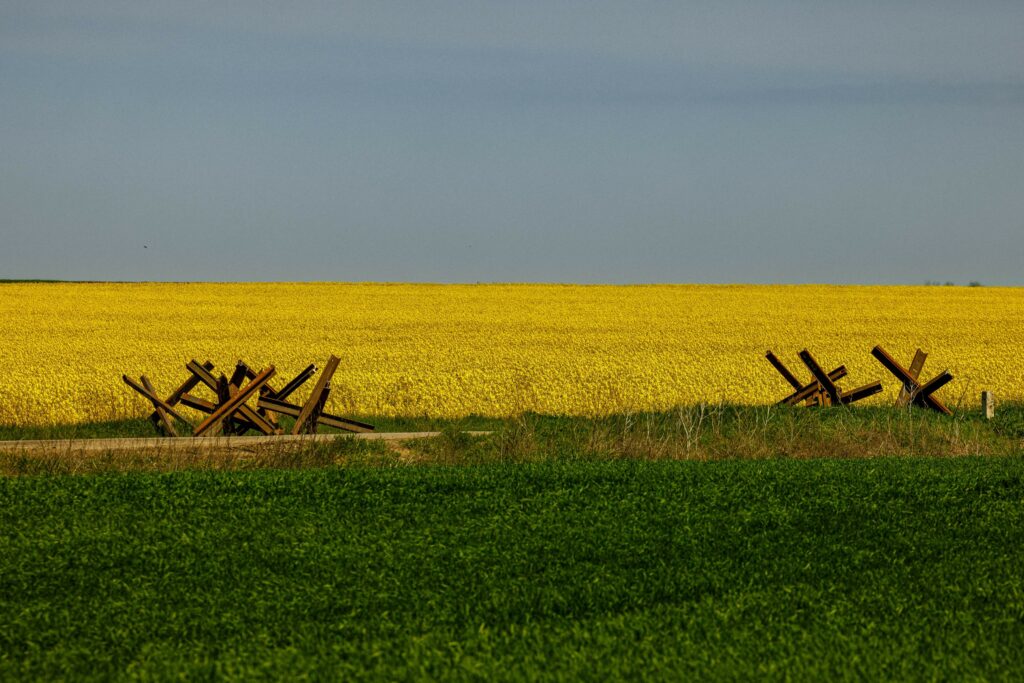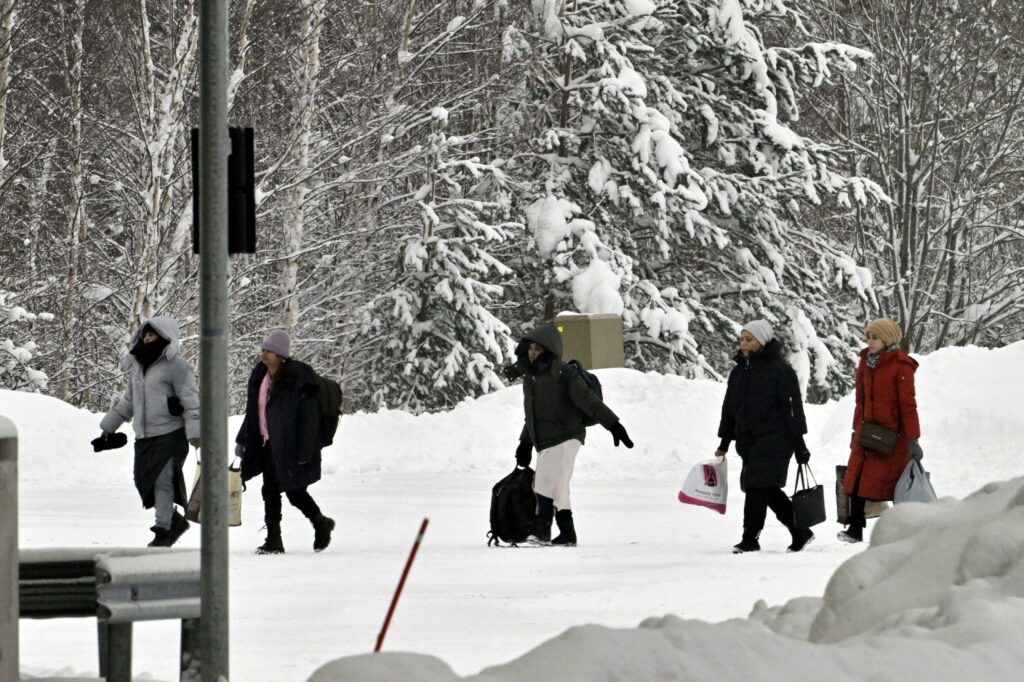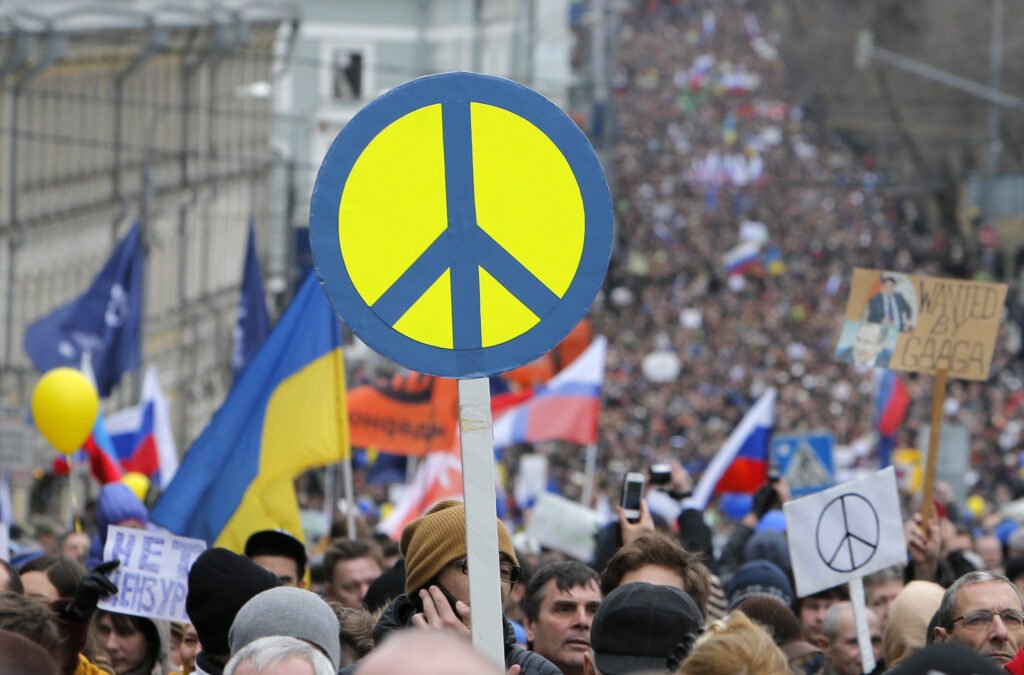Seeing fears of NATO enlargement as the driver of Russian aggression misses the Kremlin’s central motive for its domestic politics. Acts like the February 24th invasion solidify Russia’s exclusion from the international community, which helps cement the Kremlin’s own narrative of an ‘us versus them’ between Russia and the West. The Russian leadership uses this narrative to perpetuate its sense of legitimacy, evoking a spirit of patriotism and unity in the face of foreign threats.
This narrative device is not new; it has been the basis of regime’s claim to power at least since 2014. Its early forms were outlined after the 2004 Orange revolution in Ukraine, revealed for example in Surkov’s concept of ‘sovereign democracy’ that mirrored the Kremlin’s concerns about foreign interference in Russian politics.
Looking at Russia’s war against Ukraine with this domestic driver in mind, it is evident that the Kremlin had certain expectations of how the public would react to a war. These expectations were based on the Kremlin’s past experience of managing public opinion in Russia through state-controlled media and foreign policy actions. The image of the Russian president has been built around assertive foreign policy and that image has to be upheld.
In the recent study on public opinion in Russia based on research conducted after the Crimea annexation, I have relied on social psychological approach and argued that the management of public opinion in Russia depends on the activation of national identity as the most salient standpoint from which the Russian citizens were expected to view the world around them. This helped bring Putin’s popularity to unprecedented levels as the Crimea annexation undertaken by the Russian forces as a special operation without bloodshed filled many Russian hearts and minds with pride and exhilaration. The Kremlin has undoubtedly drawn lessons from such a perceived success.
Repeating the Crimea trick?
The post-Crimea euphoria is long gone, overtaken by unpopular decisions, economic stagnation and pandemic woes. Unable to correct Russia’s systemic ills with corruption and nepotism and threatened by diminishing popularity at home, the intensification of the foreign interference agenda and confrontation path with the West emerges as the only step for this leadership to stay in power. This path of war that many observers did not believe in (myself included) could be seen in hindsight as a path the Russian leadership chose to preserve the political status quo. This view brackets away the issue of potential mental delusions involved in arriving at the ultimate decision to start this unthinkable war. A dictator who has been in self-isolation for a while, relying on a very limited circle of those close to him, is unlikely to have a solid grasp of reality.
A war is an ultimate measure of constructing ‘us versus them.’ It is the most powerful instrument for bringing the Russian national identity to the fore and making it the dominant standpoint from which ordinary Russians assess their lives and their surroundings. While at war, many people perceive events not from their personal position with specific economic interests or divergent political views but from their position as a Russian citizen. For many Russians, it is a position of a citizen who cannot affect politics but has to take the side of a national army and the country’s president because the army is ‘our own children’ and there is no other president. This path allows the Kremlin to safely do away with Alexei Navalny and anyone who might try to follow Navalny’s path of political opposition to the Kremlin. The aging political regime and its leaders — insecure of their domestic achievements and popular support — find it easier to continue to rule by having domestic cleavages and problems replaced by war-time patriotism.
What psychological processes enable this political logic? A short clip with Sergei Bodrov (a cult hero from Brat and Brat-2) is being circulated on Youtube, Yandex and through social media from February 24, 2022 — the start of the Russian invasion of Ukraine. In this 29 second clip Bodrov says: «you cannot speak badly about your own during war. Never. Even if they are wrong. Even if your side is wrong, you cannot say anything bad. This simple rule is old and primitive but it works. When the war ends, then yes, you can say this was wrong and that was wrong and we should try not to repeat it in the future.» This resonant message is undoubtedly used today by many Russians who might not have expected and wanted this war. This war-driven logic of unity and consolidation is well known under the concept of ‘rallying around the flag.’
As important facet is the context in which the invasion took place. A Levada poll conducted at the early stages of escalation at the Russian-Ukrainian border revealed that 66% of Russians believed that the escalation was initiated by the West (50%) or Ukraine (16%). It is hard to expect many of these people would dramatically shift their opinions after the invasion. Many of those who thought the West was responsible would back Putin’s decision. A more recent CNN poll suggested that half of the Russian population believed it was right for the Kremlin to use military force to prevent Ukraine from joining NATO.
Russia in 2022 is different from Russia in 2014. Recent Levada opinion polls show how more than half of Russians fear another world war. It is pretty clear that invading Ukraine was not a decision relying on what ordinary Russians wanted. We also do not observe the patriotic euphoria that was there in 2014. Even so, the logic of patriotism might still work for many Russians, who might otherwise object to war.
Today it is important to remember that the public opinion formation in Russia is still unfolding. Many Russians are not politically apathetic and socially powerless. Continuing public anti-war demonstrations — like the public defiance that we saw in the first day of war across Russia’s cities and that has continued since — can give us a glimpse of hope that the Kremlin’s expectations about the domestic political effects of war do not pan out. The Russian cultural and intellectual elites could play a central role in making their anti-war stance public. The balance of television viewers vs. those who create their worldviews based on social and online media has been gradually shifting in favor of social media. The anti-war messaging by social media celebrities, by popular singers, writers, musicians (with Semen Slepakov providing an early example) — all could become a part of creating a larger social landscape in which war is viewed as Putin’s, not Russia’s war.
The rapidly evolving context might bring about different outcomes of this Russian invasion. Whatever that may be, the health, autonomy and future survival of the Russian society and Russian culture is now intertwined with bearing the responsibility for the aggression against Ukraine carried out by the Russian state led by Vladimir Putin.
